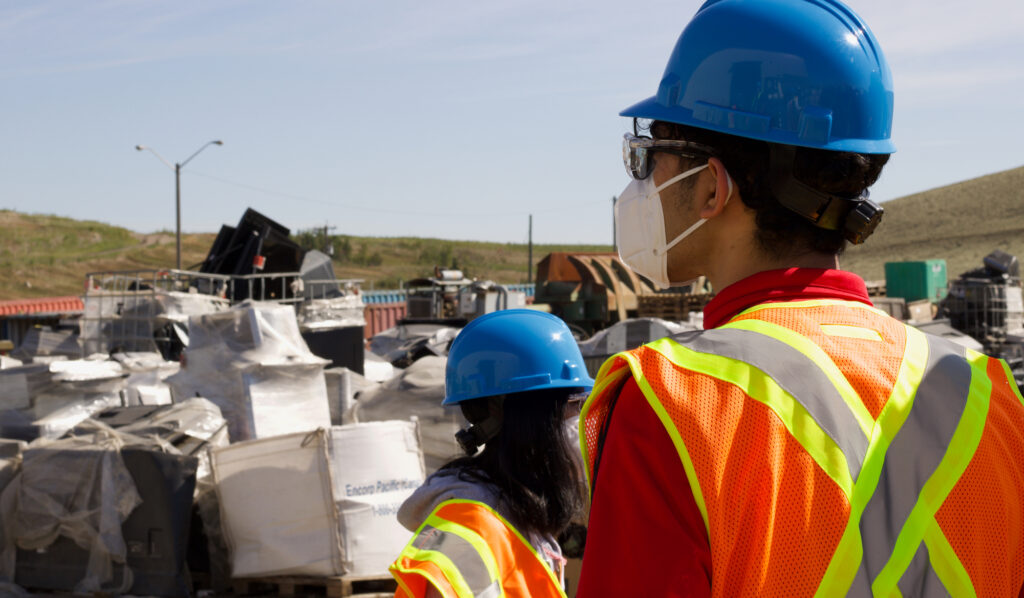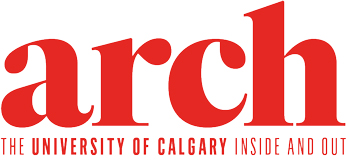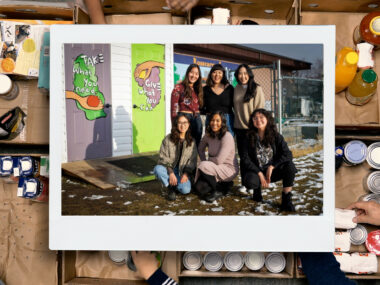
Written by Jaelyn Molyneux, BA’05
They’re in your TV, your oven, and your fluorescent and LED lights. They’re the magnetic property in your computer hard drive and the glass of your smartphone screen, as well as key to wind turbine, electric vehicle and x-ray technology.
Indeed, rare-earth elements (REEs) are crucial to much of modern life — yet they’re tough to get in an environmentally responsible way. While most REEs are found deep in the earth’s crust or in mineable areas closer to the surface, they are also already present in computers, phones and cars destined for the junk heap.
In those piles of trash, a group of UCalgary biology, engineering and bioinformatics undergraduate students see treasure. Keen participants in this year’s iGEM — an international competition (International Genetically Engineered Machine) that promotes the use of synthetic biology to develop a solution to an everyday problem — the team hopes to help make access to REEs more affordable and environmentally sound.
Neocycle is the name of the team’s three-step, synthetic-bio method to affordably get REEs out of old computers and ready to reuse in new computers. Here’s a primer on the problem, and the team’s solution:
The supply problem is growing
Demand for REEs has doubled in the past 15 years and is expected to nearly triple by 2030. Most of the supply comes from China, which has threatened to restrict it.
The Neocycle approach leans on synthetic biology
Synthetic biology uses organisms that already exist to create a new biological system or device. In this case, bacteria and proteins are used to get the REEs out of computers. It’s more sustainable and less toxic than the chemical alternative.
It starts by making metal soup
First, acid-producing bacteria dissolve all the metal in e-waste to create a soup. Sounds intense, but it’s less toxic and more cost-effective than other methods.
Then the soup is sorted
The REEs are separated from the rest of the mix using a protein. “Lanmodulin has small binding pockets that have a high affinity for rare-earth elements,” says student researcher Arshia Mostoufi, a Bachelor of Science student in the Faculty of Science, majoring in cellular biology. “It purifies them away from the other metals. Once its fully purified, it is available to be sold back into the market and reused.”
Now they measure. After all, did it really happen if you can’t measure it?
Yes, probably. But measuring tells them how much REE material was extracted so they know how to reuse it. The team again turns to protein to help with measurement. The REE sticks to the protein, which changes its shape. That triggers a signal they can use for measurement. It works within the budget of the student lab and could work in e-recycling plants that also have limited budgets.
Getting down to business
The team of undergrads is leveraging its connections to learn more about the business side of taking this idea from the lab to market. Throughout the project, they have consulted with UCalgary’s Office of Sustainability and the Hunter Hub for Entrepreneurial Thinking. They’ve spent time with local e-recycling companies to understand how they work. Along the way, they won the TechNation Open Innovation Challenge and second place at the international Wege Prize.
This project was part of the 2021 iGEM competition season and a core team of five team members — Subasthika Thangadurai, Arshia Mostoufi, Rigel Tormon, Ramin Kahidi and Anika Zaman — have decided to continue to push it forward.
“With science, there’s no cap to what you can learn,” says Zaman. “We want to take this project and see what we can do with it.”
To learn more about Neocycle, visit 2021.igem.org/Team:Calgary



